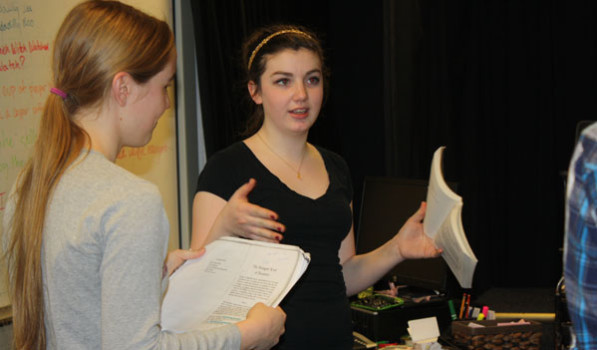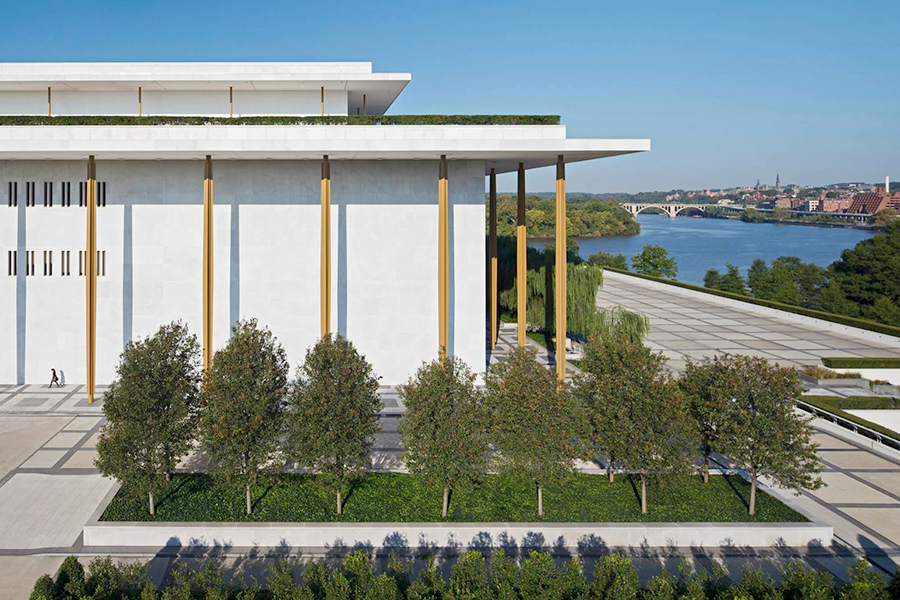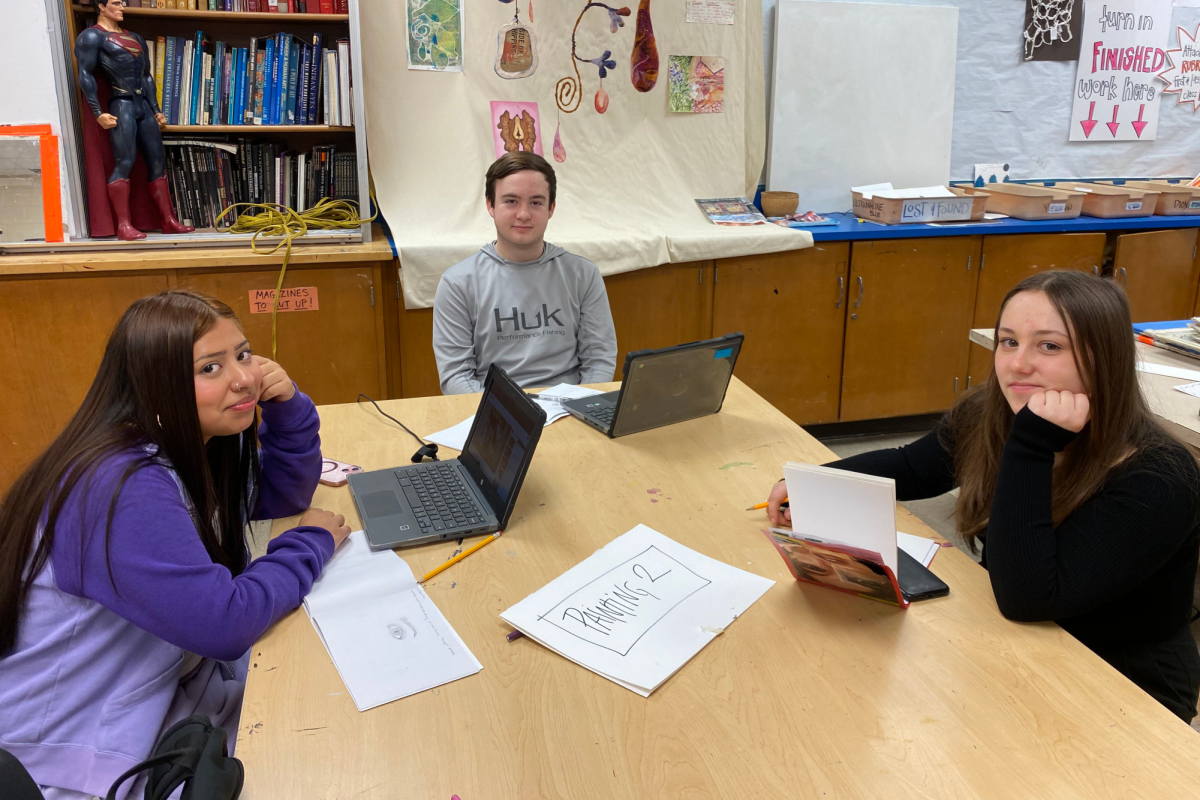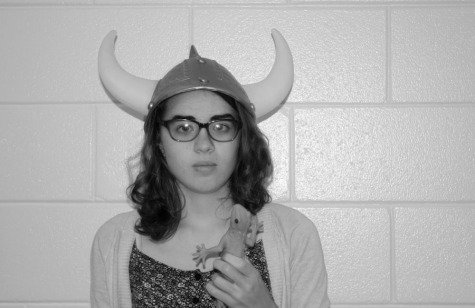“If you’re going to be an actor, you have to experience the human spectrum,” reflected Sulia Altenberg on her experiences with theater and the people she has met at South. After her freshman year, Altenberg switched to South from St. Paul Conservatory for Performing Arts, or SPCPA, where she was studying musical theater. SPCPA didn’t quite fulfill this requirement for Altenberg.
Talking to Altenberg was great for me, because I was able to remember my own time at SPCPA, which I attended for the first semester of my freshman year.
I had always imagined going to South, as it is my neighborhood school. It wasn’t until eighth grade that I realized there were more options out there, and I had the option to do more than the average public-school education I had been living my entire school career. SPCPA, a performing arts high school in the middle of downtown St. Paul, pulled me in right away, as it did to many others.
Izzy Carlson, now a junior, transferred to South from SPCPA at the beginning of her sophomore year. “It was a very glamorous school, [with a] Starbucks and Chipotle across the street,” she remembered thinking when she shadowed the school. “I was like ‘OK, I can live with this. This is awesome.’”
It is a school unlike any other. It has an open campus, meaning the school is housed in three different buildings smack in the middle of downtown St. Paul. Lunch is 45 minutes long, and you can go anywhere in the area during that time. “It gives you a huge sense of independence, and I thought ‘what better environment could it be?’” explained Carlson.
And so Carlson, Altenberg, and I, all at different times, decided to give it a try. From the start it was an amazing school. The common misconception that arts schools have bad academics was disproven to me right away. Carlson remembered getting the question “do you even have math?” She regarded this as preposterous, saying “Of course I have math! It’s a normal school but the focus is on arts, so I do have graduation requirements.”
I started off my day doing yoga, writing skits, or playing improv games in my first two classes, which alternated every other day. All the teachers work professionally in whichever art field they teach, whether it be dance, theater, music, or vocal. It is an amazing demonstration of the arts, all in one place.
I took a variety of arts classes: Voice, Movement, Acting, Theater Clowning, and Film Studies. The SPCPA campus covers 3 blocks in downtown St. Paul, so some days I would have to traipse up to the top of the beautiful Historic Landmark building to attend classes.
Carlson found it all really enjoyable. “The environment, the independence — you would get there on your own, and you go out to lunch with all these business people going about their normal day. It’s a really fun school.”
After a while, however, it started to get old. I found myself looking forward, past the repetitive arts classes, to whatever I would be doing in my academic classes, and longing for the diversity of types of people I found at my middle school, Seward Montessori.
Transferring to South was refreshing for me, as I was returned to the diversity that exists within Minneapolis. “It’s nice to see all of these different cultures of people within the school, even if we do have problems. It’s cool to be able to see my nationality represented here,” said Carlson, who was adopted from China.
“I’m glad I went here and I experienced the racial tensions. It’s something I can be aware of now,” said Altenberg.
“I know everyone is saying [South has] segregated diversity, which I completely agree with, but at least you have the choice to branch out,” added Carlson.
At SPCPA, I didn’t fit in to the exact mold of an art-oriented person, and so it was hard to make friends, which Altenberg also experienced. “[South’s] community is really great. It’s more genuine of a place,” she said.
South’s teachers also seem more interested in the students, as both Carlson and Altenberg observed. “I think all three of the [music department] teachers really listen to you and care about you,” observed Carlson.
Altenberg explained that at SPCPA, “It felt like the arts teachers were just there because they just needed a steady job sometimes, and aren’t actually interested in the students.”
The theater and music community at South is incredibly strong, as Altenberg, Carlson, and I have all found. At SPCPA, there was only one opportunity to be in a school performance, and for only 3 weeks in January. Most students at SPCPA were expected to pursue their art outside of school, something that was incredibly hard to do, after I got home around 4:45 and spent most of the evening doing homework.
But at South, having an after school activity allows you to experience a theater program first hand, rather than studying the theory of it in class. In addition, all of the arts program instructors seem qualified, as Altenberg explained, “[The theater staff here] are also very involved in the theater world, so I don’t feel deprived at all.”
Surprisingly, Carlson says that she has found the music program at South a big improvement to her time at SPCPA. She views South as much more complete in their music program, with more levels and departments. “We have a great choir program, a really good orchestra program, and a great band program; we have the package deal,” she said. “A lot of people from the instrumental department have left [SPCPA].”
Carlson explained that, “Specifically the instrumental track had huge problems,” with teachers coming and going, and a lack of communication with the administration about their problems. “A lot of people had problems with the [administration],” she said. The problems with teachers in her instrumental track is what Carlson cites as her main reason for leaving. SPCPA was only started in 2005, and is still trying to get things figured out, meaning they have had their share of administrational problems.
Since I left, the administration has cracked down more, giving discipline and detentions. The year I was there they had just begun to address the drug use at the school. “There was clearly a problem with drugs at that school, and they needed to deal with the fact that there was an open campus, and kids could do whatever they wanted,” explained Carlson.
If you asked me if I regretted going to SPCPA, however, I would say no. It was an amazing experience, in which I got to be a part of a whole new group of people and was exposed to a whole new community that celebrated art. I would always recommend SPCPA to people who were considering going there, but there is a reason SPCPA and other performing arts schools have a high turnover rate. As a school, SPCPA is still developing, meaning it has some problems to resolve. In addition, it’s a very specific school that is only for a specific type of person.








